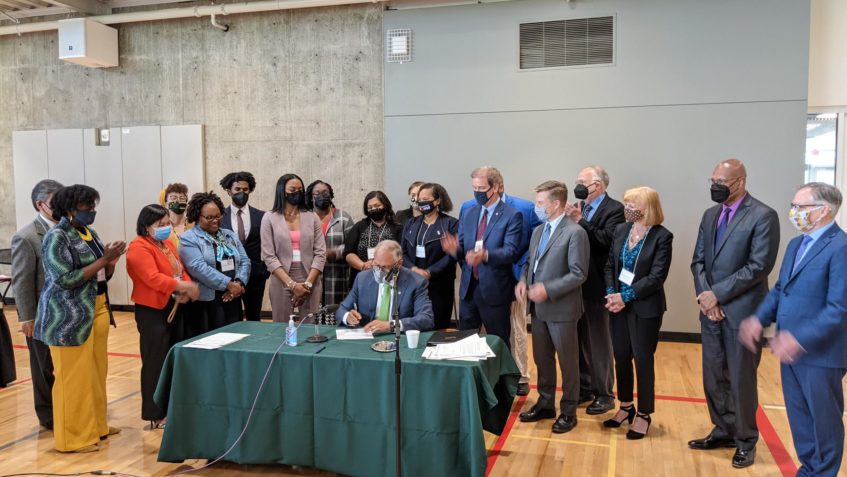OLYMPIA — Today the governor signed legislation into law that will establish an advisory group to assist with the design, development, and implementation of a statewide database for police use of force. This database will enable use of force data to be collected and made available to the public, policymakers, researchers, and law enforcement.
Senate Bill 5259, sponsored by Sen. T’wina Nobles (D-Fircrest), maintained strong bipartisan support through the legislative process. Prior to enactment, Washington state operated without a centralized database use-of-force data.
“This is a first step toward collecting data on police uses of force and other interactions between community and law enforcement. Communities of color face disproportionately negative outcomes from interactions with law enforcement,” said Nobles. “As a Black woman, mother, and legislator, this issue is deeply personal. With the signing of this bill, we have the opportunity to begin building trust through transparency. Moreover, having access to a centralized database will enable us to make more informed decisions as policy makers. In order to have effective decisions about accountability, we need data.”
Law enforcement agencies must now collect and report data regarding incidents involving use of force. The publicly accessible online database will have clear, comprehensive and contextual information. The Office of the Attorney General (AGO), who originally requested the legislation, must establish an advisory group to assist with the design, development, and implementation of a statewide use of force data program. The advisory group must submit recommendations to the AGO by April 1, 2022. The data will be housed at a Washington state institution of higher education.
“The Legislature has worked on many reforms regarding police accountability this session. This bill allows us to measure the efficacy of those reforms and effectiveness of trainings that our police force receive,” said Nobles. “Providing the public with access to data will increase transparency, help build trust with communities, and allow us an incredible opportunity to collaboratively develop solutions to reduce crime.”

